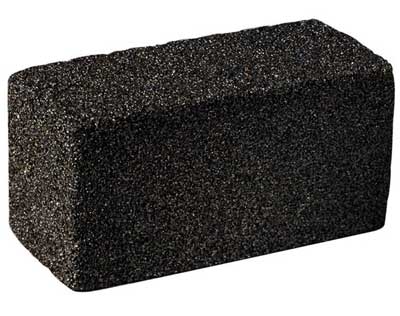Just an idea, I did a bit of searching around the forums and the web and did not find any examples of these griddle bricks used as an insulating material in construction of an rmh. Apparently pumice melts between 1600 and 1800 F so it can withstand decent temperatures. I am not sure however that these figures would mean the same for these typical bricks used for cleaning flat-top grills. They can be ordered from most restaurant suppliers and online you can get a case of 12 for about 15 bucks. The big ones are 3 1/2 x 4 x 8 inches but one appealing feature is that they can be easily cut, ground or otherwise shaped into any dimension. From this they could be packed together very tightly without the necessity of a slip or mortar in between them. I have read in other threads that the R value of pumice is poorer than rock wool, perlite/slip or vermiculite but those comparisons seemed to be to the loose-fill pumice one might find at a nursery. There might be an advantage in the tight uniform structure of this particular material.
They could be easily employed in insulating the feed tube and the burn chamber, outside of the fire brick interior but I am not so sure about the heat riser. Perhaps with a more heat tolerant material on the interior of the core.
Anyway, I just thought they might be useful in this sort of application and this is where I come to find out whether or not my ideas would be a waste of money and time! Thanks!


